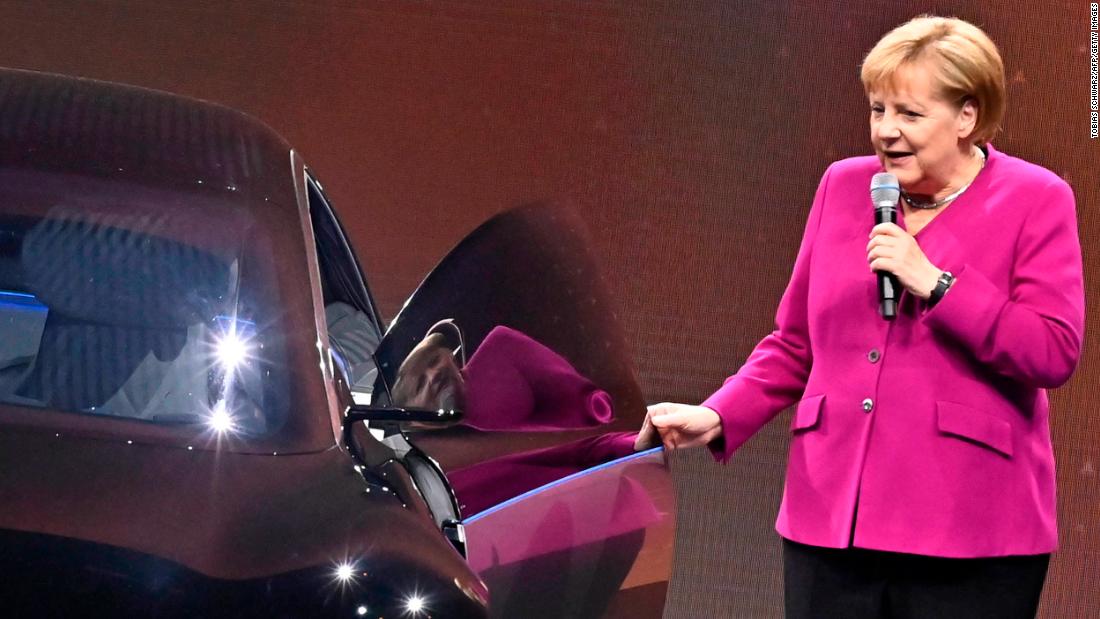Germany is handing out money for electric cars as part of a major new stimulus

The German government will double existing subsidies to 6,000 euros ($ 6,720) for electric vehicles costing up to 40,000 euros ($ 44,800), Chancellor Angela Merkel’s Christian Democratic Union party reported. The total incentive grows to as much as 9,000 euros ($ 10,080) if the existing contribution of the producer is included.
Potential car buyers will also benefit from a temporary reduction in the state’s sales tax to 16% from 19%.
The incentives are part of a comprehensive package of 130 billion euros ($ 145 billion) approved by the German government on Wednesday night.
Asked about the incentives on Thursday, German Finance Minister Olaf Scholz said they are part of a broader effort to help the climate. “This is about renewable energy. This is about all the climate activities that are needed to achieve [carbon] a neutral economy in 2050. We need to start now, ”he told CNN.
The total incentive package is 4% of the annual economic performance of the state. Combined with previously announced costs and tax breaks, the total amount of emergency incentives in Germany reached a peak of 14% of GDP.
Incentives could accelerate efforts by German carmakers, including Volkswagen, to produce and sell more electric cars. Volkswagen, which also owns Audi, Porsche, SEAT and Skoda, plans to spend 33 billion euros ($ 37 billion) on electricity development by 2024, expanding into new business areas, including infrastructure for charging and battery production.
The global auto industry had already suffered two years of declining sales before the coronavirus pandemic broke, forcing factories to close and distribute worldwide. This year, sales have fallen off the cliff, and there are few signs of a big recovery.
“The industry is down in a dark basement, and although it has managed to climb back a few steps, there is still no trace of light,” says Klaus Wohlrabe, head of research at Ifu.
Still, electric cars could drive a return. The European market for electric vehicles and plug-in hybrids grew by 72% in the first quarter of 2020, according to research firm Canalys. The two vehicle categories make up more than 7% of all new cars shipped to the continent.
Chris Jones, chief analyst for the automotive sector at Canalys, said the “impressive” results for electric vehicles could have been even better had there been no disruption caused by the pandemic. As it progresses, new German subsidies and the introduction of electric versions of already popular models should help the trend continue, Canalys says.
Germany’s new stimulus package was larger than analysts had expected. In addition to incentives for electric cars, it includes money for green investments, tax breaks and benefits for families with children.
“After five years of fiscal surpluses and a drop in Germany’s public debt ratio … the package once again shows that Germany is ready and able to spend when it matters,” said Holger Schmieding of Berenberg Bank.
– Nadine Schmidt, Fred Pleitgen and Mark Thompson contributed to the reporting.

Subtly charming zombie buff. Amateur analyst. Proud tvaholic. Beer fanatic. Web expert. Evil troublemaker. Passionate internet maven. Gamer. Food evangelist.






